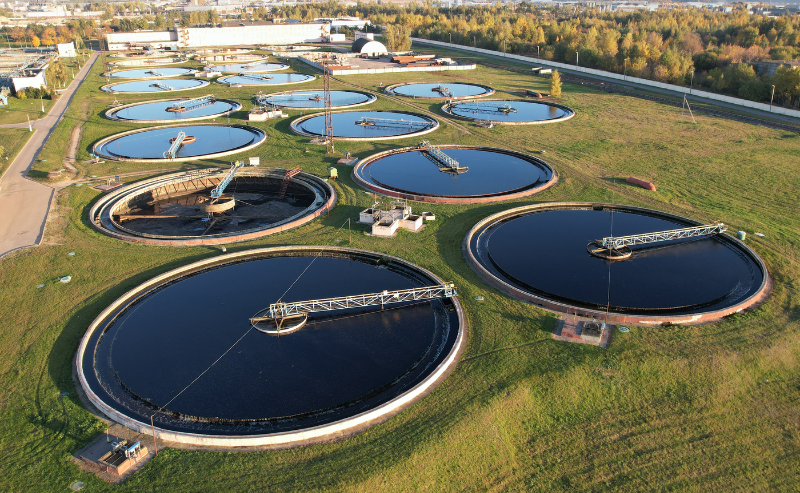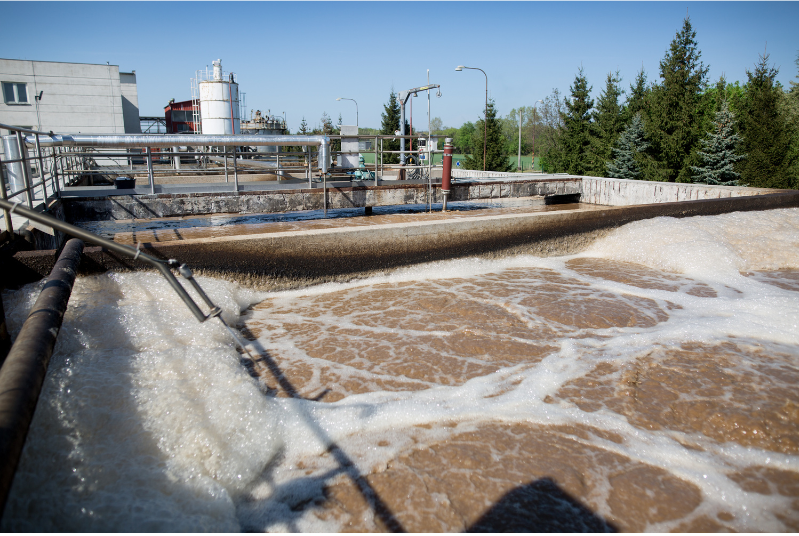Introduction to Wastewater Treatment
In the realm of environmental sustainability and public health, wastewater treatment plays a crucial role. In this blog, we explore the definition of wastewater treatment, its importance, the processes involved, and its applications.
What is Wastewater Treatment?
Wastewater treatment refers to the process of removing contaminants and pollutants from wastewater before it is released back into the environment or reused. It encompasses various physical, chemical, and biological processes to ensure that wastewater is safe for disposal or beneficial use.
Importance of Wastewater Treatment
Wastewater treatment helps protect human health by preventing the spread of diseases and pathogens present in untreated wastewater. Moreover, it safeguards aquatic ecosystems by reducing the impact of pollutants on water bodies. The importance of wastewater treatment lies in its profound impact on public health, environmental sustainability, and economic development.
Wastewater often contains harmful pathogens, chemicals, and pollutants that can spread diseases if not properly treated. Wastewater treatment ensures that these contaminants are removed or reduced to safe levels before discharge, minimizing the risk of waterborne illnesses and protecting human health. Untreated wastewater can severely degrade water quality in rivers, lakes, and oceans, leading to ecosystem damage, aquatic habitat destruction, and loss of biodiversity. Wastewater treatment helps maintain ecological balance by reducing pollution levels and preserving natural resources.
Finally, some wastewater undergoes treatment to produce reclaimed water or effluent suitable for non-potable uses like irrigation, industrial processes, and groundwater recharge. By treating wastewater, valuable resources are conserved, and pressure on freshwater sources for drinking purposes is reduced.
Processes Involved in Wastewater Treatment
Wastewater treatment involves several processes designed to remove contaminants and pollutants from wastewater before it is discharged back into the environment or reused. The key processes used are:
- Preliminary Treatment: This is the first stage where large objects like sticks, leaves, and debris are removed through screens and grit chambers. This helps prevent damage to downstream equipment and reduces the load on the treatment system.
- Primary Treatment: In this stage, wastewater is held in large tanks where solids settle to the bottom (sludge) and oils, grease, and lighter solids float to the surface (scum). These are then mechanically or manually removed, reducing the organic load in the wastewater.
- Secondary Treatment: Also known as biological treatment, this process involves the use of microorganisms to break down organic matter remaining in the wastewater. Common methods include an activated sludge process, trickling filters, and rotating biological contactors. The microorganisms consume organic pollutants, converting them into biomass, carbon dioxide, and water.
- Tertiary Treatment: This stage further refines the wastewater to remove remaining contaminants and improve water quality. Techniques like filtration (sand, membrane, or cloth), chemical coagulation and flocculation, and advanced oxidation processes (such as UV disinfection or ozonation) are used to achieve this.
- Disinfection: Before discharge or reuse, wastewater undergoes disinfection to kill harmful pathogens like bacteria, viruses, and protozoa. Chlorination, ultraviolet (UV) irradiation, and ozonation are common disinfection methods used.
- Sludge Treatment: The sludge collected from primary and secondary treatment processes undergoes further treatment to reduce its volume and stabilize it for disposal or beneficial reuse. Methods include digestion (anaerobic or aerobic), dewatering (using centrifuges, belt presses, or filter presses), and thermal treatment (such as incineration or pyrolysis).
Each of these processes plays a crucial role in ensuring that wastewater is treated effectively and meets regulatory standards before being released into the environment or reused for purposes like irrigation or industrial processes.
Applications of Wastewater Treatment
Wastewater treatment has several important applications that contribute to environmental protection, public health, and sustainable resource management. These include:
- Environmental Protection: Wastewater treatment plays a crucial role in protecting natural water bodies such as rivers, lakes, and oceans from pollution. By removing contaminants and pollutants from wastewater before discharge, it helps maintain water quality and ecosystem health, preserving aquatic life and biodiversity.
- Public Health: Proper wastewater treatment helps prevent the spread of waterborne diseases by removing pathogens like bacteria, viruses, and protozoa from wastewater. This is essential for safeguarding public health and reducing the risk of waterborne illnesses in communities.
- Water Reuse: Treated wastewater, also known as reclaimed water or effluent, can be reused for various non-potable purposes such as irrigation, industrial processes, and environmental restoration. This helps conserve freshwater resources, reduce demand for potable water supplies, and promote sustainable water management practices.
- Resource Recovery: Wastewater treatment facilities can recover valuable resources from wastewater, such as nutrients (nitrogen, phosphorus) and organic matter. These resources can be reused in agriculture (as fertilizers), energy production (biogas from anaerobic digestion), or other industrial applications, contributing to resource conservation and circular economy principles.
- Pollution Prevention: Through the removal of pollutants and contaminants, wastewater treatment helps prevent pollution of soil, groundwater, and surface water bodies. This is particularly important in urban and industrial areas where wastewater can contain harmful substances like heavy metals, chemicals, and toxins.
- Climate Change Mitigation: Some advanced wastewater treatment technologies, such as anaerobic digestion of sludge to produce biogas (a renewable energy source), contribute to climate change mitigation efforts by reducing greenhouse gas emissions and promoting sustainable energy production.
Overall, wastewater treatment plays a vital role in sustainable development by addressing environmental challenges, protecting public health, promoting resource recovery, and supporting responsible water management practices.
Challenges in Wastewater Treatment
Wastewater treatment faces several challenges that can impact the efficiency, effectiveness, and sustainability of treatment processes. Building, operating, and maintaining wastewater treatment facilities can be costly, especially for smaller communities or developing regions. Adequate funding and financial resources are needed to invest in infrastructure, technology upgrades, and skilled personnel. Wastewater treatment also requires significant energy inputs, particularly for aeration, pumping, and sludge treatment processes. Balancing energy efficiency with treatment effectiveness is a challenge, especially as energy costs and environmental considerations become increasingly important.
Scaling wastewater treatment systems to meet growing population and industrial demands can be challenging, especially in urban areas with limited space and existing infrastructure constraints. Upgrading and expanding treatment facilities while minimizing disruptions and costs pose logistical challenges. Also, managing the storage and disposal of treated wastewater, as well as sludge generated during treatment, requires adequate infrastructure and regulatory compliance. Ensuring proper storage capacity and safe disposal practices can be challenging, particularly in regions with limited land availability.
Long-term liabilities associated with wastewater treatment, including potential environmental impacts, regulatory changes, and infrastructure maintenance, require strategic planning and risk management strategies.
Addressing these challenges requires a holistic approach that integrates technical innovation, financial sustainability, stakeholder engagement, regulatory compliance, and environmental stewardship in wastewater management practices. Collaboration between governments, industries, academia, and communities is essential to overcome these challenges and ensure sustainable wastewater treatment solutions.
Innovations in Wastewater Treatment
Wastewater treatment is constantly evolving, with ongoing research and development leading to innovative technologies and approaches. Some of the newest innovations in wastewater treatment include:
- Advanced Oxidation Processes (AOPs): AOPs involve the use of powerful oxidants such as ozone, hydrogen peroxide, or UV light to break down organic pollutants, pharmaceuticals, and emerging contaminants in wastewater. These processes can effectively remove hard-to-treat compounds and improve water quality.
- Membrane Bioreactors (MBRs): MBRs combine biological treatment (using microorganisms to break down organic matter) with membrane filtration to separate solids and produce high-quality effluent. MBRs offer a compact design, improved treatment efficiency, and reduced footprint compared to traditional treatment methods.
- Electrochemical Treatment: Electrochemical processes, such as electrocoagulation and electrooxidation, use electrical energy to remove contaminants, pathogens, and heavy metals from wastewater. These technologies offer the potential for resource recovery and energy savings.
- Nutrient Recovery: Innovations in nutrient recovery technologies allow for the extraction of valuable nutrients like nitrogen and phosphorus from wastewater. These nutrients can be reused as fertilizers or in other applications, reducing environmental impacts and promoting circular economy principles.
- Microbial Fuel Cells (MFCs): MFCs harness the energy produced by microorganisms during wastewater treatment to generate electricity. This technology integrates wastewater treatment with renewable energy production, offering the potential for energy self-sufficiency and sustainability.
- Nanotechnology Applications: Nanomaterials and nanocomposites are being explored for their potential in wastewater treatment, including adsorption of pollutants, membrane enhancement, and catalytic degradation of contaminants. Nanotechnology offers opportunities for improved treatment efficiency and reduced environmental footprint.
- Biodegradable Polymers: The development of biodegradable polymers for use in wastewater treatment processes, such as flocculants and adsorbents, contributes to sustainability by reducing the use of conventional chemicals and minimizing environmental impact.
- Artificial Intelligence (AI) and Data Analytics: AI-powered systems and data analytics tools are being integrated into wastewater treatment plants to optimize operations, predict maintenance needs, and improve treatment performance. Real-time monitoring and control systems enhance efficiency and reliability.
- Green Infrastructure: Implementation of green infrastructure practices, such as constructed wetlands, rain gardens, and permeable pavement, in decentralized wastewater treatment systems helps manage storm water runoff, reduce pollutant loads, and enhance ecosystem services.
These innovations demonstrate a shift towards more efficient, sustainable, and resource-conscious approaches to wastewater treatment, addressing emerging challenges and advancing environmental stewardship goals. Continued research, collaboration, and technology adoption are essential for furthering these innovations and driving progress in wastewater treatment.
Conclusion
Wastewater treatment is a critical aspect of environmental stewardship and public health protection. By understanding its processes, challenges, and innovations, stakeholders can work towards sustainable and effective wastewater management solutions. Effective wastewater treatment contributes to sustainable development goals by promoting water reuse, resource recovery, and circular economy principles. It reduces pollution, conserves water resources, and supports environmentally sound practices across various sectors. In essence, wastewater treatment is not just a technical process but a vital component of global efforts to safeguard public health, protect ecosystems, and promote sustainable development.
Lee Enterprises Consulting
Lee Enterprises Consulting has over 180 experts that can help navigate your bioeconomy needs. If you need assistance with your wastewater project(s), please Contact Us.

